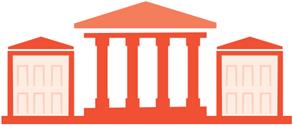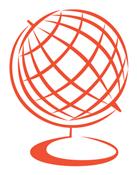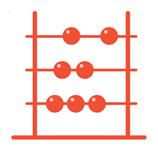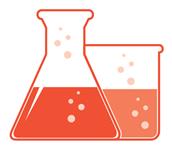-
The Curriculum
The MYP consists of eight subject groups: language acquisition, language and literature, individuals and societies, sciences, mathematics, arts, physical and health education, and design. Student study is supported by a minimum of 50 hours of instruction per subject group in each academic year. The MYP aims to help students develop their personal understanding, their emerging sense of self and responsibility in their community.
 Arts
ArtsIn MYP arts, students function as artists as well as learners of the arts. Artists have to be curious. By developing curiosity about themselves, others and the world, students become effective learners, inquirers and creative problem-solvers. Students create, perform and present arts in ways that engage and convey feelings, experiences and ideas. Through this practice, students acquire new skills and master those developed in prior learning.
Development in the arts is a dynamic process, and not necessarily linear. Students move freely through a creative process towards a deeper understanding of the arts. The process of creating artwork, as well as the product, demonstrates what students have experienced, learned and attempted to convey.
Arts in the MYP stimulate young imaginations, challenge perceptions, and develop creative and analytical skills. The course encourages students to understand the context and cultural histories of artworks, supporting the development of an inquiring and empathetic world view. Arts challenge and enrich personal identity and build awareness of the aesthetic in a real-world context.
MYP arts has four objectives of equal importance and value: knowing and understanding; developing skills; thinking creatively; responding. Although the objectives can be addressed separately to scaffold learning, collectively they enrich teaching and learning of the arts.
The aims of MYP arts are to encourage and enable students to:
- Create and present art
- Develop skills specific to the discipline
- Engage in a process of creative exploration and (self-) discovery
- Make purposeful connections between investigation and practice
- Understand the relationship between art and its contexts
- Respond to and reflect on art
- Deepen their understanding of the world
Download the Arts subject guide factsheet by clicking here.
 Design
DesignDesign, and the resultant development of new technologies, has given rise to profound changes in society, transforming how we access and process information, adapt our environment, communicate with others, solve problems, work and live. MYP design challenges students to apply practical and creative-thinking skills to solve design problems; encourages students to explore the role of design in historical and contemporary contexts; and raises students’ awareness of their responsibilities when making design decisions and taking action.
Inquiry and problem-solving are at the heart of design. MYP design requires the use of the design cycle as a tool, which provides: the methodology to structure the inquiry and analyze problems; the development of feasible solutions; the creation of solutions; and the testing and evaluation of the solution. In MYP design, a solution can be a model, prototype, product or system independently created and developed by students.
MYP design enables students to develop not only practical skills but also strategies for creative and critical thinking.
The aims of MYP design are to encourage and enable students to:
- Enjoy the design process, and develop an appreciation of its elegance and power
- Develop knowledge, understanding and skills from different disciplines to design and create solutions to problems using the design cycle
- Use and apply technology effectively as a means to access, process and communicate information, model and create solutions, and to solve problems
- Develop an appreciation of the impact of design innovations for life, global society and environments
- Appreciate past, present and emerging design within cultural, political, social, historical and environmental contexts
- Develop respect for others’ viewpoints and appreciate alternative solutions to problems
- Act with integrity and honesty, and take responsibility for their own actions developing effective working practices
Download the Design subject guide factsheet by clicking here.
 Individuals and Societies
Individuals and SocietiesThe MYP individuals and societies subject group incorporates disciplines traditionally studied under humanities and social sciences. This subject group encourages learners to respect and understand the world around them, and equips them with the necessary skills to inquire into historical, geographical, political, social, economic, and cultural factors that affect individuals, societies and environments.
The study of individuals and societies helps students to appreciate critically the diversity of human culture, attitudes and beliefs. Courses in this subject group are important for helping students to recognize that both content and methodology can be debatable and controversial, and for practicing the tolerance of uncertainty.
The IB’s approach to this subject area includes a strong focus on inquiry and investigation. Students collect, describe and analyze data; test hypotheses; and learn how to interpret increasingly complex information, including original source material. This focus on real-world examples, research and analysis is an essential aspect of the subject group.
The aims of MYP individuals and societies are to encourage and enable students to:
- Appreciate human and environmental commonalities and diversity
- Understand the interactions and interdependence of individuals, societies and the environment
- Understand how both environmental and human systems operate and evolve
- Identify and develop concern for the well-being of human communities and the natural environment
- Act as responsible citizens of local and global communities
- Develop inquiry skills that lead towards conceptual understandings of the relationships between individuals, societies and the environments in which they live
Download the Individuals and Societies subject guide factsheet by clicking here.
 Language Acquisition
Language AcquisitionThe ability to communicate in more than one language is essential to the concept of an international education that promotes intercultural understanding, and is central to the IB’s mission. The study of additional languages in the MYP provides students with the opportunity to develop insights into the features, processes and craft of language and the concept of culture, and to realize that there are diverse ways of living, behaving and viewing the world.
Acquiring an additional language and exploring and reflecting on the cultural perspectives of our own and other communities:
- Is central to developing critical thinking and international-mindedness
- Provides an intellectual framework to support personal development, cultural identity and conceptual understanding
- Greatly contributes to the holistic development of students and to the strengthening of lifelong learning skills
- Equips students with the necessary multi-literacy skills and attitudes to communicate successfully in various global contexts
The aims of MYP language acquisition are to encourage and enable students to:
- Gain proficiency in an additional language while supporting maintenance of their mother tongue and cultural heritage
- Develop a respect for, and understanding of, diverse linguistic and cultural heritages
- Develop the communication skills necessary for further language learning, and for study, work and leisure in a range of contexts
- Develop multi-literacy skills through the use of a range of learning tools
- Develop an appreciation of a variety of literary and non-literary texts and to develop critical and creative techniques for comprehension and construction of meaning
- Recognize and use language as a vehicle of thought, reflection,
- self-expression and learning in other subjects
- Understand the nature of language and the process of language learning
- Gain insight into the cultural characteristics of the communities where the language is spoken
- Gain an awareness and understanding of the perspectives of people from own and other cultures
- Develop curiosity, inquiry and a lifelong interest in, and enjoyment of, language learning
Download the Language Acquisition subject guide factsheet by clicking here.
 Language and Literature
Language and LiteratureLanguage is fundamental to learning, thinking and communicating, as well as providing an intellectual framework to support conceptual development. It plays a central role in developing critical thinking, cultivating international-mindedness, exploring and sustaining personal development and cultural identity, and responsibly participating in local, national and global communities.
MYP language and literature courses equip students with linguistic, analytical and communicative skills that help to develop interdisciplinary understanding. Students develop skills in six domains — listening, speaking, reading, writing, viewing and presenting — both independently and with others.
MYP language and literature courses include a balanced study of genres and literary texts, including a world literature component. Students’ interactions with texts generate moral, social, economic, political, cultural and environmental insights. Through their studies, students learn how to form opinions, make decisions, and engage in ethical reasoning.
The aims of MYP language and literature are to encourage and enable students to:
- Use language as a vehicle for thought, creativity, reflection, learning, self-expression, analysis and social interaction
- Develop the skills involved in listening, speaking, reading, writing, viewing and presenting in a variety of contexts
- Develop critical, creative and personal approaches to studying and analyzing literary and non-literary texts
- Engage with text from different historical periods and a variety of cultures
- Explore and analyze aspects of personal, host and other cultures through literary and non-literary texts
- Explore language through a variety of media and modes
- Develop a lifelong interest in reading
- Apply linguistic and literary concepts and skills in a variety of authentic contexts
Download the Language and Literature subject guide factsheet by clicking here.
 Mathematics
MathematicsThe study of mathematics is a fundamental part of a balanced education. It promotes a powerful universal language, analytical reasoning and problem-solving skills that contribute to the development of logical, abstract and critical thinking. The MYP mathematics and extended mathematics courses promote both inquiry and application, helping students to develop problem-solving techniques that transcend the discipline and are useful in the world outside school.
Mathematics in the MYP is tailored to the needs of students, seeking to intrigue and motivate them to want to learn its principles. Students should see authentic examples of how mathematics is useful and relevant to their lives and be encouraged to apply it to new situations.
The aims of MYP mathematics courses are to encourage and enable students to:
- Enjoy mathematics, develop curiosity and begin to appreciate its elegance and power
- Develop an understanding of the principles and nature of mathematics
- Communicate clearly and confidently in a variety of contexts
- Develop logical, critical and creative thinking
- Develop confidence, perseverance and independence in mathematical thinking and problem-solving
- Develop powers of generalization and abstraction
- Apply and transfer skills to a wide range of real-life situations, other areas of knowledge and future developments
- Appreciate how developments in technology and mathematics have influenced each other; the moral, social and ethical implications arising from the work of mathematicians and the applications of mathematics; the international dimension in mathematics; and the contribution of mathematics to other areas of knowledge
- Develop the knowledge, skills and attitudes necessary to pursue further studies in mathematics
- Develop the ability to reflect critically upon their own work and the work of others
Download the Mathematics subject guide factsheet by clicking here.
 Physical and Health Education
Physical and Health EducationMYP physical and health education aims to empower students to understand and appreciate the value of being physically active while developing the motivation for making healthy and informed life choices. To this end, physical and health education courses foster the development of knowledge, skills and attitudes contributing to a balanced and healthy lifestyle.
Students engaged in physical and health education will explore a variety of concepts that help foster an awareness of physical development and health perspectives, as well as positive social interaction. Physical activity and health are of central importance to human identity and global communities, creating meaningful connections among people, nations, cultures and the natural world.
Through physical and health education, students learn to appreciate and respect the ideas of others, and develop effective collaboration and communication skills. This subject area also offers many opportunities to build positive interpersonal relationships that can help students to develop a sense of social responsibility and intercultural understanding.
The aims of MYP physical and health education are to encourage and enable students to:
- Use inquiry to explore physical and health education concepts
- Participate effectively in a variety of contexts
- Understand the value of physical activity
- Achieve and maintain a healthy lifestyle
- Collaborate and communicate effectively
- Build positive relationships and demonstrate social responsibility
- Reflect on their learning experiences
Download the Physical and Health Education subject guide factsheet by clicking here.
 Sciences
SciencesWith inquiry at the core, the MYP sciences framework aims to guide students to independently and collaboratively investigate issues through research, observation and experimentation. The MYP sciences curriculum explores the connections between science and everyday life. As they investigate real examples of science applications, students discover the tensions and dependencies between science and morality, ethics, culture, economics, politics, and the environment.
Scientific inquiry fosters critical and creative thinking about research and design, as well as the identification of assumptions and alternative explanations. Students learn to appreciate and respect the ideas of others, gain good ethical-reasoning skills and further develop their sense of responsibility as members of local and global communities.
The MYP sciences group aims to encourage and enable students to:
- Understand and appreciate science and its implications
- Consider science as a human endeavor with benefits and limitations
- Cultivate analytical, inquiring and flexible minds that pose questions, solve problems, construct explanations and judge arguments
- Develop skills to design and perform investigations, evaluate evidence and reach conclusions
- Build an awareness of the need to effectively collaborate and communicate
- Apply language skills and knowledge in a variety of real-life contexts
- Develop sensitivity towards the living and non-living environments
- Reflect on learning experiences and make informed choices
Download the Sciences subject guide factsheet by clicking here.
 Interdisciplinary Learning
Interdisciplinary LearningInterdisciplinary learning can take place between different subject groups and between different disciplines within a subject group to encourage broader perspectives on complex issues and deeper levels of analysis and synthesis. Interdisciplinary connections must be meaningful.
In the MYP, interdisciplinary learning is the process by which students come to understand bodies of knowledge and modes of thinking from two or more disciplines and then integrate them to create a new understanding. Students demonstrate this by bringing together concepts, methods or forms of communication to explain a phenomenon, solve a problem, create a product or raise a new question in ways that would have been unlikely through a single discipline.
MYP schools must engage students in at least one collaboratively planned interdisciplinary unit in each year of the MYP in order to integrate knowledge and skills from two or more subject groups in an interdisciplinary manner.
The aims of interdisciplinary learning in the MYP are to:
- Develop a deeper understanding of learning skills and apply them in meaningful contexts
- Integrate conceptual learning, ways of knowing and methods of inquiring from multiple disciplines
- Inquire into compelling issues, ideas and challenges by creating products or explaining phenomena
- Reflect on and communicate understanding of the interdisciplinary learning process
- Experience the excitement of intellectual discovery — including insights into how disciplines complement and challenge one another
Download the Interdisciplinary Learning guide factsheet by clicking here.
© International Baccalaureate Organization
Select a School...
Select a School
- Alcott Elementary School
- Almeda Elementary
- Alternative Certification Program
- Anderson Elementary School
- Arabic Immersion Magnet School (AIMS)
- Ashford Elementary
- Askew Elementary School
- Atherton Elementary
- Attucks Middle School
- Austin High School
- Baker Montessori
- Barbara Bush Elementary
- Barbara Jordan Career Center
- Barrick (C. E.) Elementary
- Bastian Elementary School
- Baylor College of Medicine Academy at James D Ryan MS
- Baylor College of Medicine Biotech Academy at Rusk
- Bellaire High School
- Bellfort Early Childhood Center
- Benavidez Elementary
- Benbrook Elementary
- Berry Elementary
- Billy Reagan K8 Educational Center
- Frank Black Middle School
- Blackshear Elementary
- Bonham Elementary School
- Bonner Elementary
- Braeburn Elementary
- Briargrove Elementary School
- Briarmeadow Charter
- Briscoe Elementary
- Brookline Elementary
- Browning Elementary
- Bruce Elementary
- Burbank Elementary
- Burbank Middle
- Burrus Elementary
- Cage Elementary
- Career Readiness
- Carnegie Vanguard High School
- Carrillo Elementary
- Challenge Early College High School
- Clemente Martinez Elementary School
- Clifton Middle School
- Codwell Elementary
- Community Services
- Condit Elementary
- Coop Elementary
- Cornelius Elementary
- Crespo Elementary
- Crockett Elementary School
- Cullen Middle School
- Cunningham Elementary
- César E. Chavez High School
- Daily, Ray K. Elementary
- David G. Burnet Elementary
- Davila Elementary
- De Chaumes Elementary
- De Zavala Elementary
- Deady Middle School
- DeAnda Elementary School
- Distrito Escolar Independiente de Houston
- Dogan Elementary School
- Durham Elementary
- Durkee Elementary
- East Early College High School
- Eastwood Academy
- Edison Middle School
- Elementary DAEP
- Eliot Elementary School
- Elmore Elementary School
- Elrod Elementary School
- Emerson Elementary
- Energized for Excellence
- Energy Institute High School
- McGowen Elementary
- Farias ECC
- Cook Elementary
- Field Elementary School
- Fleming Middle School
- Foerster Elementary
- Fondren Elementary
- Fondren Middle School
- Fonville Middle School
- Fonwood Early Childhood Center
- Forest Brook Middle School
- Franklin Elementary
- Frost Elementary
- Furr High School
- Gabriela Mistral CEC
- Gallegos Elementary
- Garcia Elementary School
- Garden Oaks Montessori
- Garden Villas Elementary
- Golfcrest Elementary
- Gregg Elementary
- Gregory-Lincoln Education Center
- Gross Elementary
- Halpin Early Childhood Center
- Hamilton Middle School
- Harper DAEP High School
- Harris (John R.) Elementary
- Harris (Roland P.) Elementary School
- Hartman Middle School
- Hartsfield Elementary School
- Harvard Elementary School
- Health and Medical Services
- Heights High School
- Helms Elementary School
- Herod Elementary School
- Herrera Elementary School
- High School Ahead Academy Middle School
- High School for Law and Justice (HSLJ)
- Highland Heights Elementary
- Hilliard Elementary School
- Hines Caldwell Elementary School
- HISD Benefits
- HISD Human Resources
- HISD Miles Ahead Scholars
- HISD School Choice
- HISD School Website Resources
- Hobby Elementary School
- Hogg Middle School
- Holland Middle School
- Horn Elementary
- Houston Academy for International Studies
- Isaacs Elementary
- J.P. Henderson Elementary
- Long Academy
- Janowski Elementary
- Jefferson Elementary School
- John G. Osborne Elementary
- Jones Futures Academy
- Kashmere Gardens Elementary Fine Arts Magnet
- Kashmere High School
- Kate Bell Elementary
- Smith, K. Elementary
- Kelso Elementary
- Kennedy (John F.) Elementary
- Ketelsen Elementary
- Key Middle School
- Kinder High School for the Performing and Visual Arts
- Kolter Elementary
- Lamar High School
- Lanier Middle School
- Lantrip Elementary
- Las Americas
- Laurenzo Early Childhood Education Center
- James H. Law Elementary
- Lawson Middle School
- Lewis Elementary
- Liberty High School Homepage
- Lockhart Elementary School
- Longfellow Elementary School
- Looscan Elementary
- Love Elementary School
- Lovett Elementary School Fine Arts Magnet
- Lyons Elementary School
- Mabel B. Wesley Elementary School
- MacGregor Elementary School
- Mading Elementary STEM Academy
- Madison (James) High School
- Mandarin Immersion
- Marcellus Elliot Foster Elementary
- Twain (Mark) Elementary
- Mark White Elementary School
- Marshall Middle Academy of Fine Arts
- Martin Luther King, Jr. Early Childhood Center
- McNamara Elementary
- McReynolds Middle School
- Medicaid Finance & Consulting Services
- Memorial Elementary
- Meyerland Performing and Visual Arts Middle School
- DeBakey High School for Health Professions
- Mickey Leland College Preparatory Academy for Young Men
- Gulfton
- Middle College at Felix Fraga
- Milby High School
- Milne Elementary School
- Mitchell Elementary School
- Montgomery Elementary
- Moreno, Joe E. Elementary
- Henderson Elementary School
- Neff Early Learning Center
- Neff Elementary School
- North Forest High School
- North Houston Early College HS
- Northline Elementary
- Northside High School
- Oak Forest Elementary School
- Oates Elementary
- Ortiz Middle School
- Paige Elementary
- Park Place Elementary School
- Parker Elementary
- Henry Middle School
- Patterson Elementary
- Paul Revere Middle School
- Peck Elementary
- Pershing Middle School
- Petersen Elementary
- Pilgrim Academy
- Pin Oak Middle School
- Piney Point Elementary School
- Pleasantville Elementary School
- Poe Elementary
- Port Houston Elementary School
- Project Chrysalis Middle School
- Pugh Elementary
- Raul Martinez Elementary
- Red Elementary
- Redesign
- Reynolds Elementary
- River Oaks Elementary IB World School
- Roberts Elementary
- Robinson Elementary
- Rodriguez, Sylvan Elementary
- Roosevelt Elementary
- Ross (Betsy) Elementary School
- Rucker Elementary
- Sam Houston Math, Science and Technology Center
- Sanchez Elementary
- Scarborough Elementary
- Scarborough High School
- Scroggins Elementary School
- Secondary DAEP
- Seguin Elementary
- Shadowbriar Elementary
- Shadydale Elementary School
- Sharpstown High School
- Sharpstown International School
- Shearn Elementary School
- Sherman Elementary School
- Sinclair Elementary School
- South Early College High School
- Southmayd Elementary School
- Sterling Aviation High School
- Stevens Elementary
- Stevenson Middle School
- Student Supports
- Students
- Sugar Grove Academy Middle School
- Sutton Elementary
- T.H. Rogers School
- Tanglewood Middle School
- Texas Connections Academy at Houston
- Texas Education
- The Rice School La Escuela Rice
- The School at St George Place
- Thomas Middle School
- Thompson Elementary
- Thurgood Marshall Elementary School
- Tijerina Elementary
- Tinsley Elementary
- Travis Elementary School
- Valley West Elementary
- Virgil I. Grissom Elementary School
- Wainwright Elementary
- Walnut Bend Elementary
- Waltrip High School
- Washington High School
- Welch Middle School
- West Briar Middle School
- West University Elementary School
- Westbury High School
- Westside High School
- Wharton Dual Language Academy
- Wheatley High School
- Whidby Elementary
- White (Ed) Elementary
- Whittier Elementary School
- Williams Middle School
- Windsor Village Vanguard Magnet Elementary
- Wisdom High School
- Woodson PK-5 Leadership Academy
- Worthing High School
- Yates High School
- Navarro Middle School
- Young Elementary
- Young Scholars Academy for Excellence
- YWCPA







